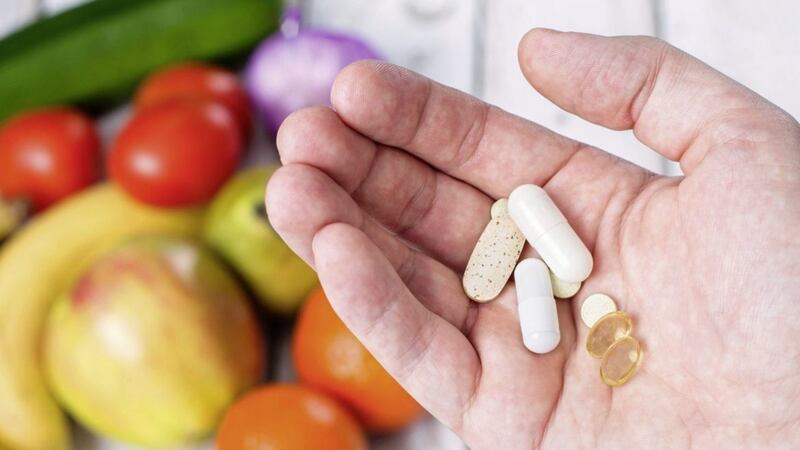IN LAST week’s column I highlighted the importance of taking vitamin C and vitamin D to help support our immunity through this winter.
In light of Covid-19, many of us have been adding a multivitamin, extra vitamin C or D, or an immune-supporting supplement to our daily routine to help add a little nutritional boost to our day, but how to do you know if it is doing you any good or not, and do we even need to supplement?
This week I thought I would take this opportunity to answer your FAQs about nutritional supplements.
:: Do we need to take nutritional supplements?
Put it like this – we are in the middle of a pandemic, so the more we can do to support our health, and in particular our immunity, the better. There is enough evidence around to convince me that taking a few carefully chosen supplements is an important part of our armoury of immune defence.
:: What supplements should I take?
As a basic immune protection plan, I would suggest taking vitamin C and vitamin D as a first-line defence.
There is compelling evidence to suggest that having too little vitamin D puts us at risk of more severe symptoms of Covid-19. Despite some nutritional information suggestion that we can get vitamin D through our diet, the fact remains that plenty of us living on this island are at risk of low vitamin D status, simply because of our distance from the equator and lack of sunlight. We simply cannot get enough through diet to protect us against infection, so we must take a daily supplement.
An adequate intake of Vitamins C and D is vital for immune resilience and potentially a cheap and effective way of supporting our immunity through this winter.
A healthy recommendation for adults is to supplement 1000mg of Vitamin C and a minimum of 600-800 IU/d vitamin D3 daily, increasing to a higher therapeutic dose of 5000 IU/d should symptoms of Covid-19 develop.
:: Can I buy them from the supermarket?
Support your local, independent health food shop. They will be able to give you good advice on the best supplements to take, and they tend to stock better quality and more effective supplements than supermarkets. There has never been a time when it has been more important to support our local suppliers, so use this as an opportunity to support a small business.
:: What’s the best time of day to take my supplements?
It depends on what the supplement is. For example, vitamin C is water soluble and is quickly excreted by the body, so it is recommend that we split our daily vitamin C dose so that we take it twice a day. For example if you are taking 1000mg a day, you’d be better taking 500mg with breakfast and 500mg later in the day, rather than 1000mg all at once.
Vitamin D is best taken in the morning, while individual minerals like iron and zinc are best taken away from other supplements and food to enhance absorption, as they can interact with other minerals and reduce absorption rates. Taking vitamin C with iron will maximise absorption too.
:: Can I take too much?
As with anything else, you can get too much of a good thing. Always follow the manufacturers recommended dosage, and don’t be tempted to take a double dose of anything.
:: Is it dangerous to take more than the RDA?
The RDA is the very lowest baseline required by the human body to prevent deficiency diseases. For example, the RDA of vitamin C is 60mg (I am recommending you take 1000mg). 60mg vitamin C will prevent you from getting scurvy but it is not adequate to give you much immune protection.
As long as you take only what the label says, generally nutritional supplements are safe to take at higher levels than the RDA.








